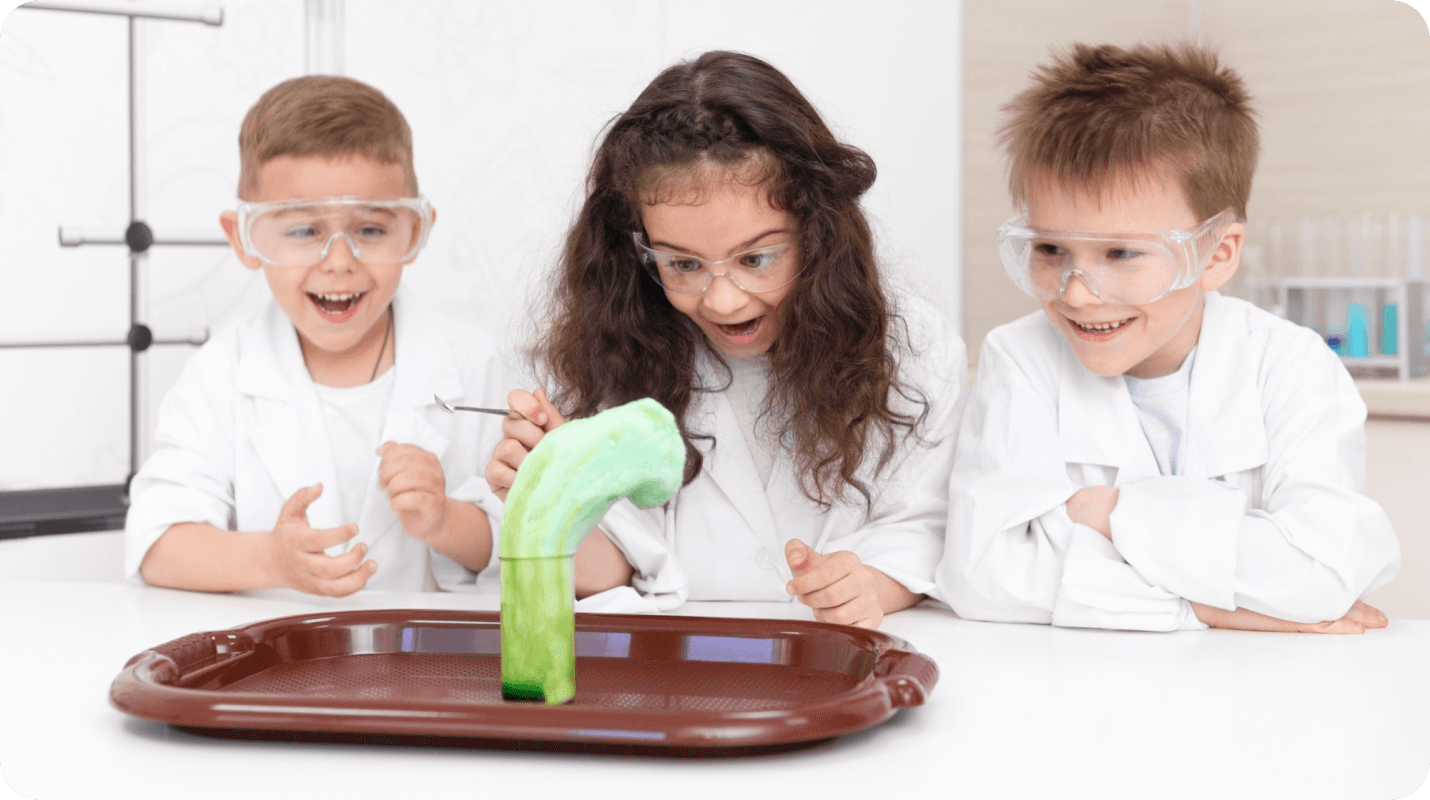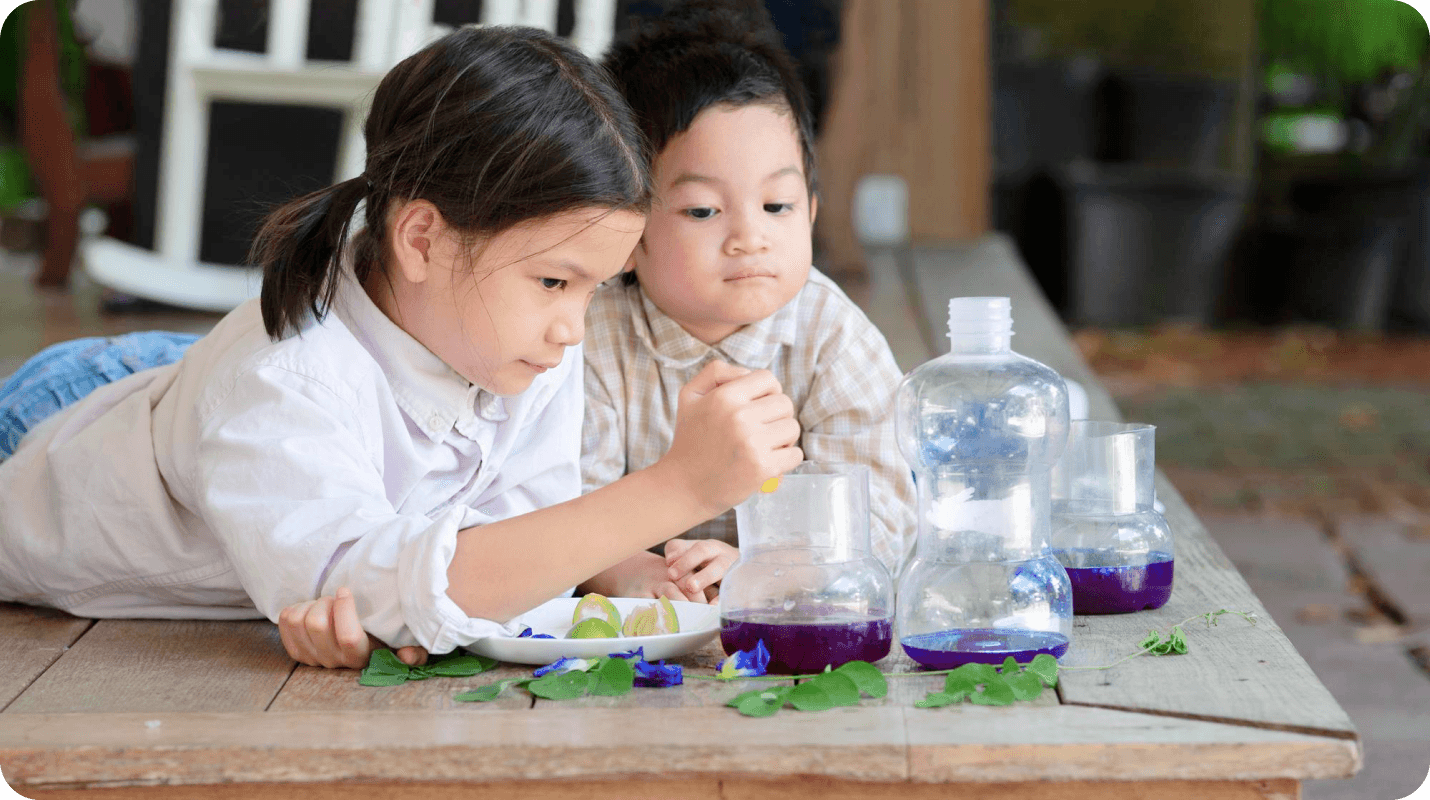Science is not just about formulas and lab reports; it's a doorway to curiosity and discovery, especially for young learners. Engaging children in simple yet exciting science experiments can spark their interest in the natural world and encourage them to explore basic scientific concepts. Here are some fun, safe, and educational science experiments that are perfect for young minds.
Colorful Milk Magic
Materials Needed: Milk, food coloring, dish soap, cotton swabs.
Procedure: Pour milk into a shallow dish, add a few drops of different food coloring near the center, dip a cotton swab in dish soap, and touch the center of the milk. Watch the colors explode in a kaleidoscope of movement!
Concepts Learned: Chemical reaction, surface tension.
DIY Volcano
Materials Needed: Baking soda, vinegar, dish soap, food coloring, and a container.
Procedure: Mix vinegar with a few drops of food coloring and dish soap. Fill another container halfway with baking soda, then pour the vinegar mixture over it to see an erupting volcano!
Concepts Learned: Acid-base reactions, gas production.

Dancing Raisins
Materials Needed: Clear soda or sparkling water, raisins.
Procedure: Fill a glass with soda water and drop a few raisins in it. Watch as they begin to dance up and down in the glass!
Concepts Learned: Buoyancy, gas bubbles
Invisible Ink
Materials Needed: Lemon juice, water, spoon, bowl, cotton bud, white paper, and a heat source (like a light bulb).
Procedure: Mix lemon juice with a few drops of water. Use the cotton bud to write a message on the paper, let it dry, and then hold it up to a heat source. Watch the message appear!
Concepts Learned: Oxidation, heat reaction.
Ice Fishing
Materials Needed: Ice cubes, string, salt, and a glass of water.
Procedure: Place an ice cube in water, lay a string on the ice, sprinkle salt over the string and ice, wait a minute, then lift the string.
Concepts Learned: Freezing point depression.
Science is not just about formulas and lab reports; it's a doorway to curiosity and discovery, especially for young learners. Engaging children in simple yet exciting science experiments can spark their interest in the natural world and encourage them to explore basic scientific concepts. Here are some fun, safe, and educational science experiments that are perfect for young minds.
Colorful Milk Magic
Materials Needed: Milk, food coloring, dish soap, cotton swabs.
Procedure: Pour milk into a shallow dish, add a few drops of different food coloring near the center, dip a cotton swab in dish soap, and touch the center of the milk. Watch the colors explode in a kaleidoscope of movement!
Concepts Learned: Chemical reaction, surface tension.
DIY Volcano
Materials Needed: Baking soda, vinegar, dish soap, food coloring, and a container.
Procedure: Mix vinegar with a few drops of food coloring and dish soap. Fill another container halfway with baking soda, then pour the vinegar mixture over it to see an erupting volcano!
Concepts Learned: Acid-base reactions, gas production.

Dancing Raisins
Materials Needed: Clear soda or sparkling water, raisins.
Procedure: Fill a glass with soda water and drop a few raisins in it. Watch as they begin to dance up and down in the glass!
Concepts Learned: Buoyancy, gas bubbles
Invisible Ink
Materials Needed: Lemon juice, water, spoon, bowl, cotton bud, white paper, and a heat source (like a light bulb).
Procedure: Mix lemon juice with a few drops of water. Use the cotton bud to write a message on the paper, let it dry, and then hold it up to a heat source. Watch the message appear!
Concepts Learned: Oxidation, heat reaction.
Ice Fishing
Materials Needed: Ice cubes, string, salt, and a glass of water.
Procedure: Place an ice cube in water, lay a string on the ice, sprinkle salt over the string and ice, wait a minute, then lift the string.
Concepts Learned: Freezing point depression.
Science ignites the spark of curiosity in children, transforming simple experiments into gateways of exploration and wonder.
Science ignites the spark of curiosity in children, transforming simple experiments into gateways of exploration and wonder.
Encouraging exploration and providing a loving and supportive aging environment is key to helping them navigate these early years of being educated successfully.
Encouraging exploration and providing a loving and supportive aging environment is key to helping them navigate these early years of being educated successfully.
Share to:
Share to:
Latest Articles


Related articles
Related articles
Ready to give your child
a head start?

Ready to give your child
a head start?

Ready to give your child a head start?

Ready to give your child
a head start?




